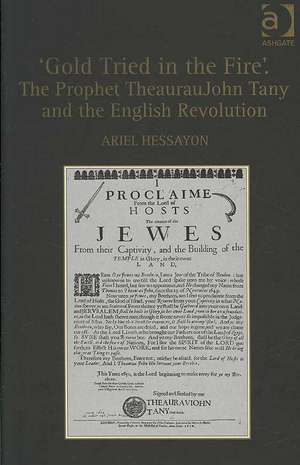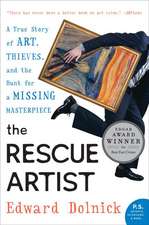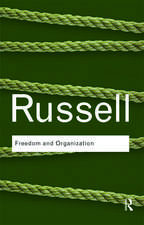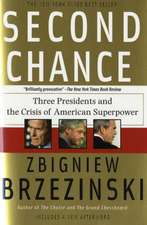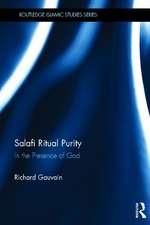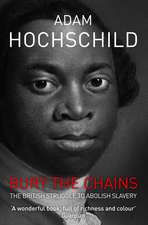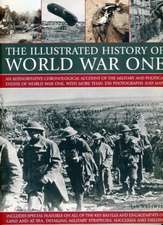'Gold Tried in the Fire'. The Prophet TheaurauJohn Tany and the English Revolution
Autor Ariel Hessayonen Limba Engleză Hardback – 23 oct 2007
Preț: 826.77 lei
Preț vechi: 1144.50 lei
-28% Nou
Puncte Express: 1240
Preț estimativ în valută:
158.20€ • 172.38$ • 133.31£
158.20€ • 172.38$ • 133.31£
Carte tipărită la comandă
Livrare economică 23 aprilie-07 mai
Preluare comenzi: 021 569.72.76
Specificații
ISBN-13: 9780754655978
ISBN-10: 0754655970
Pagini: 504
Dimensiuni: 156 x 234 mm
Greutate: 0.84 kg
Ediția:1
Editura: Taylor & Francis
Colecția Routledge
Locul publicării:Oxford, United Kingdom
ISBN-10: 0754655970
Pagini: 504
Dimensiuni: 156 x 234 mm
Greutate: 0.84 kg
Ediția:1
Editura: Taylor & Francis
Colecția Routledge
Locul publicării:Oxford, United Kingdom
Cuprins
Contents: Introduction: TheaurauJohn Tany and the English Revolution. Part I Genesis: Genesis; The bitterness of the godly; The wilderness of Zin; Birth of the Prophet. Part II Genealogy of the High Priest: TheaurauJohn; Genealogy of the High Priest; Justice; Hell. Part III King of the Jews: King of the Jews; Canonical and extra-canonical sources; Son of the morning stars; The book of Theos-ologi according to TheaurauJohn; To your tents, O Israel; Gold Tried in the Fire. Bibliography; Indexes.
Recenzii
'This work brilliantly extends our understanding of the radical protestant mind opened up by Christopher Hill and Paul Seaver - it will become a standard work for anyone wishing to explore radical sectarian mentalities of the English Revolution. By recovering the mental, social and religious world of Thomas Tany in the 1630s and 1650s, it explores the religious transformation of an obscure London Goldsmith Thomas Totney into the prophetic King of the Jews, TheauraJohn Tany. Hessayon’s deep archival research has allowed him to decode Tany’s writings and public performances, placing them in the various alchemical, Behmenist, Gnostic, astrological, and millennial contexts. The name Tany will become as familiar as that of William Walwyn, Lodwick Muggleton and Gerard Winstanley.' Justin Champion, Royal Holloway, University of London, UK 'This is a remarkable book: Hessayon's study of this farmer-cum-gold-trinket-maker is a work of academic alchemy, taking Tany's bizarre utterances and transforming them into a burnished shield that shows us the English Revolution in dramatically new lights. As Hessayon applies his cool intellect to Tany's white hot imaginings and prophecies, sparks fly in all directions, making this a compelling read for all those interested in the ideas, literature or religious heterodoxy of the mid seventeenth century.' John Morrill, Selwyn College, Cambridge, UK 'A groundbreaking study with some breathtaking archival work that shows how much value there is in working on the life records of one obscure person. Hessayon reveals the deep knowledge of history, theology and the occult known to a humble goldsmith who became one of the more flamboyant prophets during the turbulent years of the English Interregnum, and in doing so he sheds important light on the pre-1640 origins of Civil War radicalism.' Nigel Smith, Princeton University, USA ’This is an extraordinary book about an extraordinary figure... The bare facts of Totney's/Tany's life, wh
Notă biografică
Ariel Hessayon is Lecturer in the History Department at Goldsmiths, University of London, UK.
Descriere
This is a study of the most fascinating and idiosyncratic of all seventeenth-century figures: Thomas Totney (1608-1659), a London puritan, goldsmith and veteran of the Civil War. In November 1649, after fourteen weeks of self-abasement, fasting and prayer, Totney experienced a profound spiritual transformation and declared himself TheaurauJohn Tany, 'a Jew of the Tribe of Reuben' descended from Aaron the High Priest. During his prophetic phase Tany enacted a millenarian mission to restore the Jews to their own land and wrote a number of remarkable but elusive works. By contextualizing and then unraveling the mind of this exceptional person, this book provides a clearer view of what it was like living in the wake of the English Revolution, when freed men and women spoke their minds and challenged the times.
